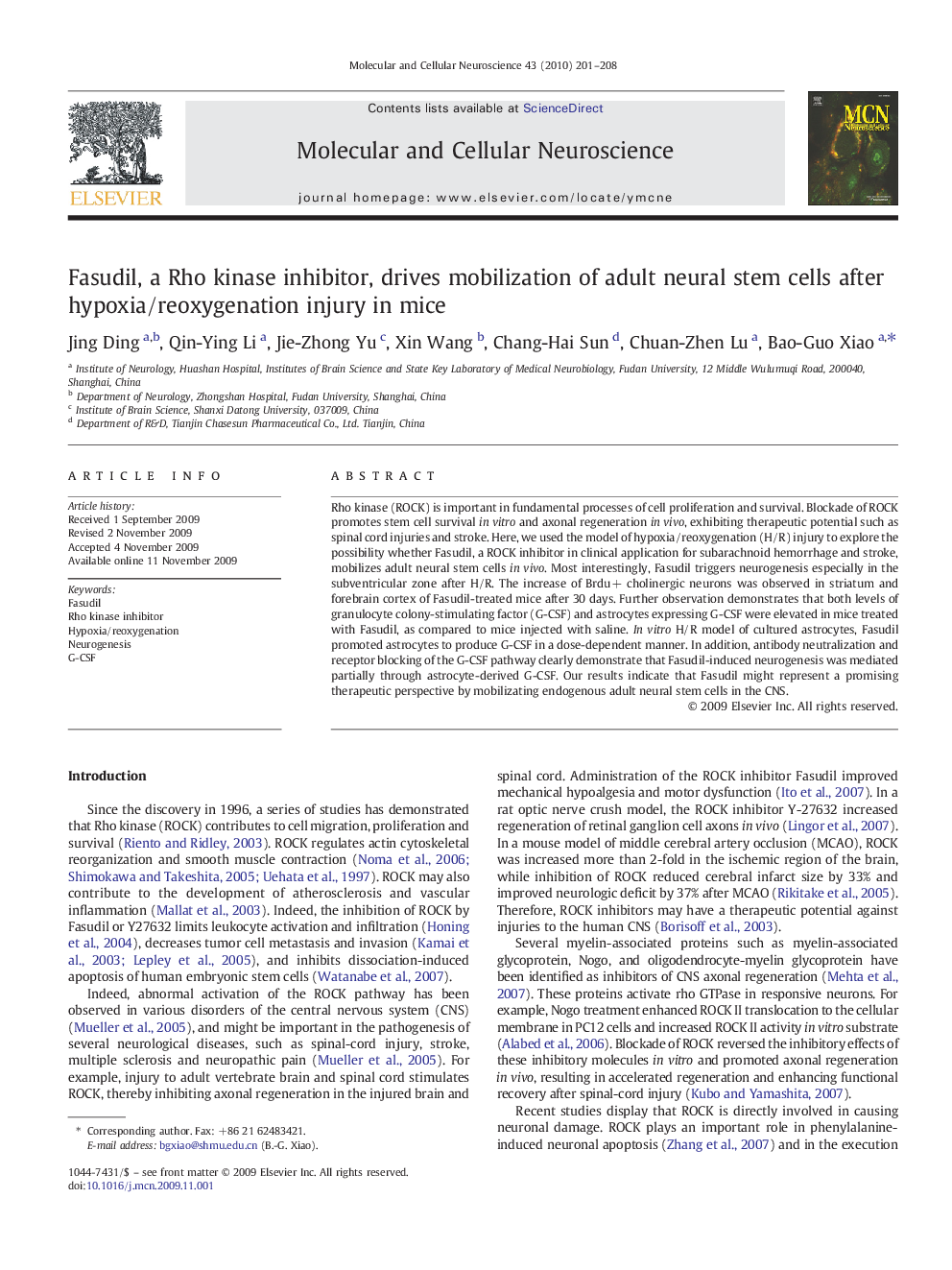| Article ID | Journal | Published Year | Pages | File Type |
|---|---|---|---|---|
| 2198826 | Molecular and Cellular Neuroscience | 2010 | 8 Pages |
Rho kinase (ROCK) is important in fundamental processes of cell proliferation and survival. Blockade of ROCK promotes stem cell survival in vitro and axonal regeneration in vivo, exhibiting therapeutic potential such as spinal cord injuries and stroke. Here, we used the model of hypoxia/reoxygenation (H/R) injury to explore the possibility whether Fasudil, a ROCK inhibitor in clinical application for subarachnoid hemorrhage and stroke, mobilizes adult neural stem cells in vivo. Most interestingly, Fasudil triggers neurogenesis especially in the subventricular zone after H/R. The increase of Brdu+ cholinergic neurons was observed in striatum and forebrain cortex of Fasudil-treated mice after 30 days. Further observation demonstrates that both levels of granulocyte colony-stimulating factor (G-CSF) and astrocytes expressing G-CSF were elevated in mice treated with Fasudil, as compared to mice injected with saline. In vitro H/R model of cultured astrocytes, Fasudil promoted astrocytes to produce G-CSF in a dose-dependent manner. In addition, antibody neutralization and receptor blocking of the G-CSF pathway clearly demonstrate that Fasudil-induced neurogenesis was mediated partially through astrocyte-derived G-CSF. Our results indicate that Fasudil might represent a promising therapeutic perspective by mobilizating endogenous adult neural stem cells in the CNS.
